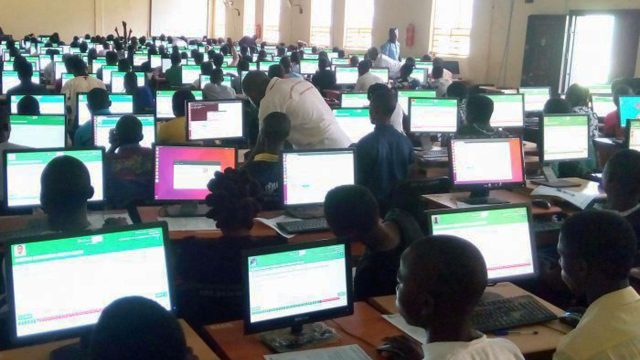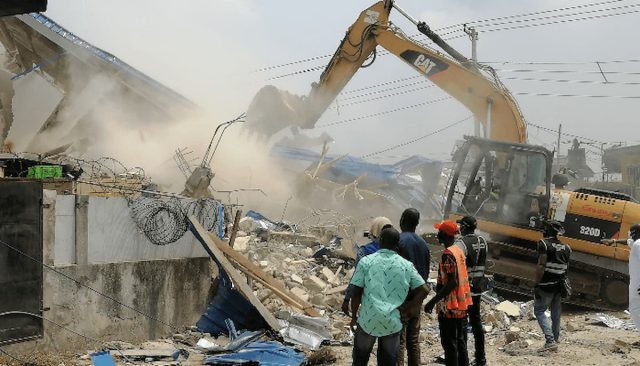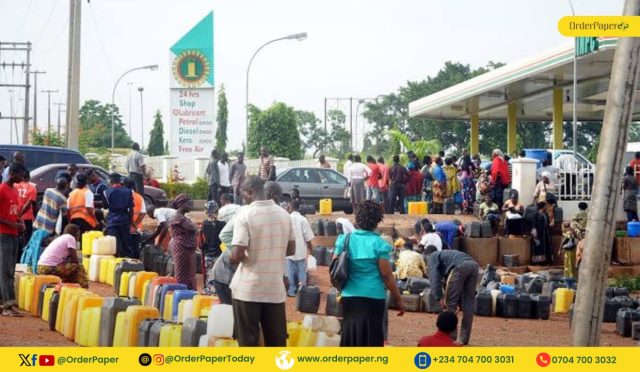As the Nigerian National Assembly gears up for its next legislative week, speculations abound regarding the pressing issues that will take centre stage. OrderPaper, in this LIFE SERVICE, lists some of these issues.

In a week rife with many uncertainties, Nigeria finds itself grappling with a multitude of pressing issues that have captured the attention of the nation and the corridors of the National Assembly are abuzz with anticipation, as these pressing issues demand attention.
From systemic failures in education to infrastructural upheavals, economic burdens, and socio-political tensions, the country stands at a crossroads looking forward to decisive action from its leaders.
From the harrowing tales of students grappling with a massive failure in the Joint Admissions and Matriculation Board (JAMB) exams to the distressing demolition of homes and properties in Lagos to make way for road construction, NASS cannot but speak.
Amidst these, the deafening silence from the government on the long-awaited salary review for workers, particularly on May 1st, hangs heavy in the air. Adding fuel to the fire, reports of police brutality and wanton arrests reverberate while the newly introduced cybersecurity levy by the Central Bank of Nigeria (CBN) raises questions about its potential impact on businesses and individuals alike. These are real issues that NASS cannot turn a blind eye to.

JAMB Crisis: Massive failure
The Joint Admissions and Matriculation Board (JAMB), the gateway to tertiary education in Nigeria, has once again found itself embroiled in controversy as reports of massive student failures in its recent Tertiary Matriculation Examinations surface. This systemic failure not only jeopardizes the future of countless students but also raises serious questions about the integrity and effectiveness of Nigeria’s education system. As parents, students, and education stakeholders demand accountability and reform, the National Assembly is under immense pressure to address the root causes of this crisis and institute measures to prevent its recurrence.

Demolition for Development or personal interests
In Lagos, Africa’s largest city and economic hub, the landscape is being reshaped by ambitious infrastructure projects aimed at addressing the city’s chronic congestion and inadequate transportation networks. However, the pursuit of progress comes at a cost, as the demolition of houses and properties to make way for the Lagos-Calabar coastal highway has left many residents and businesses displaced and disillusioned. The issue is worsened by reports of under-the-table deals and non-compliance to due process in the awarding of contracts for the construction. The clash between development and displacement underscores the need for NASS to investigate, evaluate and ensure that the government prioritizes the welfare of citizens while advancing the city’s development agenda.

DSTV Subscription Hike
As if economic hardships weren’t enough, Nigerians were hit with another blow as pay-TV giant DSTV announced a hike in subscription fees, further stretching the budgets of already cash-strapped households. The move has sparked outrage among consumers who feel they are being exploited by monopolistic practices in the telecommunications industry. The National Assembly must heed the calls for regulatory intervention to protect consumers from arbitrary price hikes and promote fair competition in the pay-TV market.

Silence on Salary Review: Workers’ Plight Ignored
May 1st, International Workers’ Day, traditionally a time to celebrate the contributions of workers and advocate for labour rights, passed by with no commitment from the government regarding the long-awaited salary review. Despite assurances of addressing workers’ grievances, the government’s inaction has left labour unions and workers disillusioned and disheartened. The National Assembly must hold the government accountable for its promises and champion the cause of workers’ rights and fair wages.

Police Brutality and Media Suppression
Reports of police brutality and the arbitrary arrest of journalists continue to cast a dark shadow over Nigeria’s democracy, undermining fundamental rights and freedoms. The brazen disregard for human rights and press freedom not only erodes public trust in law enforcement institutions but also threatens the very fabric of democratic governance. The National Assembly must exercise its oversight role to reign in excesses within the security forces and safeguard the rights of citizens and journalists to freedom of expression and assembly.

Cybersecurity Levy: Balancing Security and Economic Impact
In a bid to bolster cybersecurity infrastructure and combat cyber threats, the Central Bank of Nigeria (CBN) has introduced a new cybersecurity levy on banking transactions, imposing additional financial burdens on businesses and consumers alike. While the move is ostensibly aimed at safeguarding national security interests, concerns have been raised about its potential adverse effects on economic growth and digital innovation. The National Assembly must carefully scrutinize the implications of the cybersecurity levy and ensure that it strikes the right balance between security imperatives and economic sustainability.

Carryover issues
In our most recent LIFE Service, OrderPaper, a leading voice in legislative analysis, predictions were made about the key topics likely to dominate discussions in the hallowed chambers of the assembly. Some of these issues, although discussed by NASS, are still on the front burner.
One of the foremost concerns highlighted in the article is the resurgence of fuel queues across the nation. Despite assurances from regulatory bodies and government officials, long lines of vehicles waiting to purchase fuel have become an all too familiar sight in recent weeks highlighting the chronic instability of the country’s fuel supply chain. Amidst fluctuating global oil prices, mismanagement, and corruption, ordinary citizens bear the brunt of erratic fuel availability and exorbitant prices. NASS faces the daunting task of keeping up with its intervention to ensure a stable and affordable fuel supply for its citizens.
Footnote
As these issues converge on the national stage, the eyes of the nation turn towards the hallowed halls of the National Assembly, where lawmakers are tasked with the weighty responsibility of addressing the grievances and concerns of the people they represent.
Enacting meaningful reforms and policies that address the root causes of these issues and charting a course towards a brighter and more prosperous future for all its citizens is all Nigerians want. Failing to address these issues or turning a blind eye to them raises questions on the worth of the National Assembly to the man on the street!



